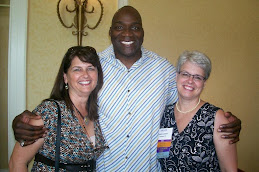DNA Guided Health, Beauty, and Wellness
Educate yourself as we discover why our genetic makeup plays a big part in not only who we are ... but how we age and what health propensities we will need to focus on as we age. Find out what your SNPs (single nucleotide polymorphisms) are and what organic natural products are available to help you.
For more infomation visit: http://www.dnaandyourgenes.com/
For more infomation visit: http://www.dnaandyourgenes.com/
Search This Blog
Monday, October 26, 2009
Quick Genetic Tutorial
Within every human cell is an individual’s blueprint for life —their DNA. DNA contains the master information that is needed to construct and maintain the human body.
DNA is long. About six feet long, to be exact, if you took the DNA contained within one cell and stretched it end to end. There are several different ways that these long strands of DNA can be divided into smaller pieces.
1. Chromosomes
The largest unit of DNA is a chromosome. There are 23 pairs of chromosomes inside of our cells: one set from each parent. These 23 pairs contain all of our genetic information.
2. Genes
The next unit down is a gene, which is simply a sequence of DNA that corresponds to a particular inheritable trait. There is a gene for hair color, for example, and a gene for height. We get one gene from each parent for each inheritable trait. These are called alleles. The main job of each gene is to encode — or tell the body how to build —different proteins. While that may seem like a small job, proteins serve many critical functions in the body. Enzymes, for example, are proteins.
3. Nucleotides
The smallest unit is a nucleotide, which is the “building block” of DNA. Nucleotides are tiny: less than one millionth of a millimeter!
On a strictly DNA basis, humans are surprisingly alike. Despite our apparent differences, the DNA between any two people is 99.1% identical. That 0.9% variation in DNA, however, is hugely important, accounting for all of our genetic differences.
Small variations in DNA are called polymorphisms. Blood type is a common human polymorphism. Depending on the order in which the nucleotides in your DNA line up, you could have blood type A, B, A/B, or O. Some polymorphisms are so small, they affect the order of just one pair of nucleotides. These are called single nucleotide polymorphisms or SNPs (pronounced “snips”).
There are about 10 million SNPs in the human genome. Most of these SNPs occur in the DNA between genes and account for non-consequential differences.
However, some SNPs occur in the DNA within genes. These SNPs can have a dramatic impact on human health. They can predict how you will react to certain drugs. They can determine how susceptible you will be to environmental toxins. And they can cause you to produce faulty proteins that have a negative impact on the functioning of the body, and may lead to diminished health and wellness.
More to come ..
Yours in health,
Rhonda
Thank you to Genewize for providing the above information.
Labels: Rhonda Maguire, DNA, Genewize, vitamins
Rhonda Maguire Genewize Vitamins Supplements DNA genetic testing skin serum
Subscribe to:
Post Comments (Atom)





No comments:
Post a Comment
Note: Only a member of this blog may post a comment.